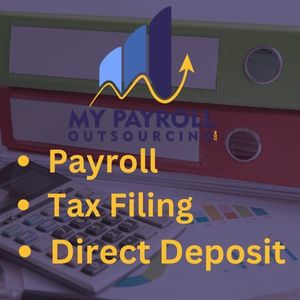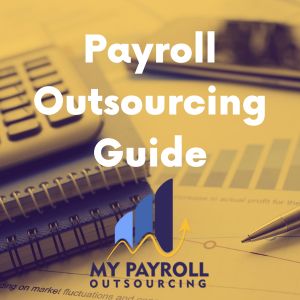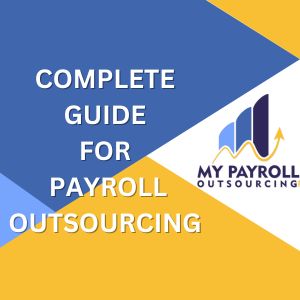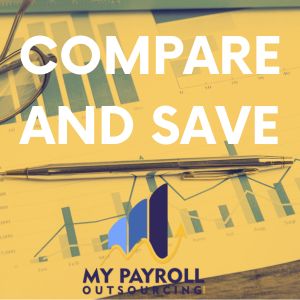
8 Top Features to Look for in Payroll Outsourcing
In an increasingly complex and regulated business environment, payroll processing can pose a significant challenge for many organizations. Payroll errors can lead to serious consequences, ranging from dissatisfied employees to hefty legal fines. To manage this critical function more effectively, many businesses are turning to payroll outsourcing services. However, not all payroll providers are created equal. To ensure that you select the most suitable service for your business, consider the following eight key features when evaluating potential providers.
1. Compliance Knowledge and Expertise
The world of payroll is fraught with legal complexities and constant regulatory changes. It’s imperative that your payroll provider has a deep understanding of these matters and stays up-to-date with the latest changes in tax laws and labor legislation. They should be able to guarantee compliance, thus protecting your business from costly mistakes and penalties.
2. Comprehensive Services
A top-quality payroll service provider should be able to handle all aspects of payroll processing. This includes everything from calculating payroll taxes, deductions, and net pay to generating payslips and tax forms. Additionally, they should be able to handle year-end tax reporting and other associated tasks. The more comprehensive the services, the less you’ll have to manage internally.
3. Integration Capabilities
Your chosen payroll service provider should be able to integrate seamlessly with your existing systems, such as human resources (HR) and time-tracking software. This will streamline your processes, reduce the risk of errors due to manual data entry, and provide more accurate reporting.
4. Customizability
Every business has unique payroll needs. Whether it’s varied pay schedules, multiple payment methods, or specific reporting requirements, your payroll service provider should be able to customize their offerings to suit your business’s needs.
5. User-Friendly Interface
While your payroll service provider will handle the bulk of the payroll tasks, you and your employees will still need to interact with their system. Whether it’s for entering time-tracking data, viewing payslips, or accessing tax forms, the platform should be intuitive and easy to use.

6. Reliable Customer Support
Even with the best systems, questions and issues can arise. When they do, you want to ensure that you can rely on prompt, helpful, and knowledgeable customer support.
7. Data Security
Payroll processing involves handling sensitive employee data. It’s essential to choose a payroll service provider with robust data security measures in place to protect this information. This includes data encryption, secure access controls, and regular security audits.
8. Positive Customer Reviews
Finally, don’t overlook the importance of positive customer reviews. Look for a provider with a strong reputation and a track record of satisfied clients. This can give you a sense of the provider’s reliability, customer service, and overall quality of services.
Selecting a payroll outsourcing service is a significant decision that can have a profound impact on your business operations. By keeping these key features in mind during your search, you can find a service that not only meets your payroll needs but also contributes to the overall efficiency and success of your business.

What Tasks Will Payroll Outsourcing Services Handle?
Outsourcing your payroll tasks can take a significant load off your team’s shoulders, freeing up time to focus on your core business operations. But what exactly will a payroll outsourcing service handle? Let’s dive into some of the key responsibilities you can expect these services to take on.
Payroll Calculations
One of the core responsibilities of a payroll service is to accurately calculate employee paychecks. This involves much more than simply multiplying hours worked by an hourly rate. They must account for deductions like taxes, health insurance, retirement contributions, and other employee benefits. If you hire independent contractors, the service should also be able to handle their payments.
Tax Filing
Payroll taxes can be complicated, with different rules and rates depending on your location and the size of your business. A good payroll service will handle all aspects of tax filing for you. This includes calculating and withholding the correct amount from each paycheck, filing the necessary forms with tax authorities, and ensuring that all payments are made on time to avoid penalties.
Direct Deposit and Check Issuance
Employees today expect flexible payment options. A payroll service will handle direct deposit arrangements, allowing for quick, easy, and paperless wage payments. If any of your employees prefer a traditional check, the service should also be able to accommodate this.
Benefit Administration
If your company offers benefits such as health insurance or retirement plans, managing these can be a time-consuming task. Payroll services often provide benefit administration, keeping track of who’s enrolled, calculating deductions, and liaising with benefit providers.
Reporting
Reporting is a crucial aspect of payroll. Your chosen service should provide comprehensive reports that give you insight into your payroll expenses. This includes reports on wage and labor costs, tax liabilities, and more.

Unlimited Payroll Runs
Some payroll providers limit the number of payroll runs you can do each month, but many online payroll services now offer unlimited payroll runs. This flexibility is particularly beneficial for small businesses, where cash flow can fluctuate and the ability to run payroll at short notice is essential.
Free Trial and Ongoing Support
Finally, many payroll providers offer a free trial period, allowing you to test their platform and services before committing fully. Once you’re a customer, they should provide ongoing support to assist with any questions or issues that arise.
Payroll outsourcing services are responsible for a broad range of tasks – all designed to simplify the complex and time-consuming process of managing payroll. By choosing a service that covers all these areas, small business owners can streamline their operations and focus on growing their businesses.
The Power of Payroll Outsourcing in Reducing Human Error
Handling payroll internally often means relying on a small team or even a single individual. With so many details to manage and deadlines to meet, the risk of human error is relatively high. Errors in payroll can lead to various issues, from dissatisfied employees to costly fines for non-compliance. By outsourcing your payroll, you significantly reduce these risks and safeguard your business. Here’s how.
1. Accuracy
Payroll outsourcing services use advanced software systems that have inbuilt checks and balances to ensure accuracy. These systems are programmed to handle complex calculations, track various rates, deductions, and benefits, and to comply with the latest tax laws. As a result, the likelihood of mistakes is drastically reduced.
2. Consistency
Human error often arises from inconsistency—overlooking a crucial step or failing to update a change in an employee’s status or benefit plan. Payroll services follow a standardized process for every payroll run, ensuring consistency. Any changes in employee data are updated in real-time, ensuring the system is always working with the most current information.
3. Up-to-Date with Compliance
Tax laws and regulations change regularly, and non-compliance can result in heavy penalties. Keeping up with these changes can be challenging for a small business. A payroll service, however, is mandated to stay current with all tax laws, ensuring your business remains compliant.

4. Expertise
Payroll outsourcing services have teams of experts who specialize in different areas, including tax law, benefits administration, and data security. Their breadth and depth of knowledge far exceed what a small business could maintain in-house. Their expertise helps avoid errors that might arise from a lack of understanding or confusion about complex payroll issues.
5. Data Security
Handling payroll internally can expose your business to the risk of data breaches or fraud. Payroll outsourcing services use secure systems and follow stringent security protocols to protect your employees’ sensitive data.
6. Time Savings
Finally, outsourcing payroll eliminates the time your team would otherwise spend on these tasks—time that could be better spent growing your business. Moreover, it eliminates the time and stress involved in rectifying errors and dealing with their aftermath.
While human error is an ever-present risk in all business operations, outsourcing your payroll to a reliable provider can dramatically reduce this risk. The resulting peace of mind, combined with the time and resource savings, makes payroll outsourcing a wise choice for businesses of all sizes.
The Cost-Effectiveness of Payroll Outsourcing
The actual cost of outsourcing payroll can vary widely based on several factors like the number of employees, the complexity of your payroll, and the services you need. However, even with these costs, many businesses find that outsourcing payroll can save them money in the long run.
Average Cost of Outsourcing Payroll
On average, a basic payroll service can cost anywhere from $20 to $200 per month plus an additional $2-$10 per employee. For more comprehensive services that include things like tax filing, the cost can increase to $100-$500 per month plus an additional $5-$15 per employee.
While these costs may seem significant, when you compare them to the potential savings, the picture becomes clearer.
Savings from Outsourcing Payroll
- Time Savings: Time is money. The hours you or your employees spend on payroll are hours not spent on growing your business. When you consider the value of your time, the cost of a payroll service can quickly pay for itself.
- Avoiding Penalties: Mistakes in tax filing can result in hefty fines. A professional payroll service reduces the risk of such errors and the associated penalties.
- Reduced Overhead: Maintaining a payroll system in-house requires not just staff time but also the right software and IT infrastructure. With payroll outsourcing, these costs are eliminated.
- Avoiding the Costs of Errors: Mistakes in payroll calculations or failure to comply with regulations can lead to not just financial penalties but also lower employee morale and potential legal issues.
- Scalability: As your business grows, your payroll needs will also grow. With an in-house payroll system, this means increased costs in terms of software upgrades, additional staff, and more complex tax obligations. A payroll service can easily scale with your business without a significant increase in costs.
While outsourcing payroll comes with its costs, it can lead to substantial savings in the long run, especially for small to large businesses. Outsourcing allows you to streamline your operations, focus on your core business, and ensure compliance with all payroll regulations, all while potentially saving money.

Top 10 Payroll Outsourcing Companies in 2023
- ADP: ADP is a global leader in payroll outsourcing services, known for its comprehensive payroll solutions and a wide range of additional HR services. Its customizable platform is suitable for businesses of all sizes.
- Paychex: Paychex offers scalable solutions from small to large businesses, making it an ideal choice whether you have two employees or two thousand. Their services extend beyond payroll to include benefits administration, HR consulting, and more.
- Intuit QuickBooks Payroll: If your business uses QuickBooks for its accounting, integrating with QuickBooks Payroll can make the payroll process even smoother. It offers full-service payroll features and integrates seamlessly with their accounting software.
- Gusto: Gusto is a cloud-based platform that’s popular with small businesses. It offers full-service payroll along with benefits administration and compliance management.
- OnPay: OnPay’s payroll service includes unlimited pay runs, tax filing, and the ability to handle a variety of pay types. It is highly regarded for its transparent, simple pricing and excellent customer service.
- SurePayroll: A subsidiary of Paychex, SurePayroll is designed specifically for small businesses and offers a simple and intuitive online payroll experience.
- Zenefits: Zenefits is more than a payroll service. It’s a full-service HR platform with robust payroll capabilities, making it a good choice for businesses looking for a comprehensive solution.
- Square Payroll: If you’re already using Square’s POS system, Square Payroll could be a good fit. It integrates with the Square system for smooth operation, making it a great option for retail businesses.
- Patriot Software: Patriot Software offers affordable payroll services for small businesses, with options for either full-service or self-service payroll depending on your needs.
- Paycor: Paycor provides user-friendly payroll services along with a range of other HR solutions. It’s known for its excellent customer service and customizable solutions.
Remember, the best payroll service for your business will depend on your specific needs, including the size of your business, the complexity of your payroll, and any additional HR services you require. Each of these providers offers its own unique set of features, so it’s important to do your research and choose the one that best fits your needs.
Considering Payroll Software as an Alternative
Outsourcing payroll isn’t the only option available to businesses. Some may prefer to keep payroll in-house but still want to automate the process. In this case, payroll software can be a great alternative.
Payroll software can help businesses manage payroll, taxes, and reporting independently. These software solutions often come with a variety of features designed to simplify the payroll process. Some of these features might include:
- Automated Calculations: Payroll software can automatically calculate employee pay, taxes, benefits, and deductions. This significantly reduces the amount of time spent on manual calculations and minimizes the risk of errors.
- Integrated Time Tracking: Some payroll software options offer integrated time-tracking features. These allow employees to log their hours directly in the system, which are then automatically reflected in their payroll.
- Tax Filing: Many payroll software options include features that help businesses file and pay their payroll taxes. They can also generate necessary tax forms for employees, such as W-2s and 1099s.
- Reporting: Payroll software typically includes a variety of reporting features. These can help businesses analyze payroll expenses, track overtime, and more.
One key benefit of using payroll software over outsourcing is that it often allows for greater control and flexibility. Since you’re managing payroll in-house, you can make adjustments or corrections more swiftly. However, running payroll in-house using software still requires a time commitment. Businesses will need to ensure they stay current on tax laws and payroll regulations. It’s also essential to keep the software updated to benefit from the latest features and security measures.

Some popular payroll software providers in 2023 include QuickBooks Payroll, ADP Workforce Now, Paychex Flex, and Gusto. Each offers a range of features designed to make in-house payroll easier and more efficient. Ultimately, the choice between outsourcing payroll or using software will depend on the specifics of your business, your budget, and the amount of time you’re able to devote to managing payroll. Both options have their advantages, and understanding these can help you make an informed decision that supports your business’s growth and success.
Getting Started with Payroll Outsourcing
Now that we’ve discussed the benefits and key features of payroll outsourcing services, let’s go over the steps to get started with outsourcing your business’s payroll:
- Understand Your Needs: Before you can start looking for a payroll service provider, you need to understand what you’re looking for. Are you just looking for payroll processing, or do you need a full suite of services, including tax filing, benefits administration, and HR support? Also, consider the size of your business and the complexity of your payroll. All these factors will impact the type of service you need.
- Research Providers: Start your search for a provider by compiling a list of potential companies. Look for companies that offer the services you need and have a good reputation in the industry. Check out customer reviews and ratings, and look for any awards or recognitions the company has received.
- Ask for Proposals: Once you have a shortlist of potential providers, reach out to each one for a proposal. The proposal should include details on the services they offer, their pricing structure, and how they will manage your payroll. Make sure to ask any questions you have about their service.
- Review Proposals: Review each proposal thoroughly. Look at the services they’re offering and the cost of those services. But also look beyond the numbers. Does the company seem reliable? Do they have a good customer service record? These factors are just as important as the cost.
- Make a Decision: After reviewing all the proposals, it’s time to make a decision. Choose the provider that offers the best combination of services, cost, and reliability.
- Transition Your Payroll: Once you’ve chosen a provider, you’ll need to transition your payroll to them. This will involve providing them with all necessary information about your employees and your company. The provider should guide you through this process to ensure it’s as smooth as possible.
- Ongoing Management: After your payroll has been transitioned, your work isn’t quite done. You’ll need to manage the relationship with your provider to ensure you’re getting the service you expect. This may involve regular meetings to review their performance and address any issues.
Getting started with payroll outsourcing can feel like a daunting task, but with a bit of preparation and the right provider, it can be a straightforward process that brings significant benefits to your business.

Navigating the Complexities of Payroll Outsourcing
Outsourcing your payroll operations to a third-party provider comes with a lot of perks, but it’s also important to understand the complexities of the service. Here are some key considerations:
1. Handling of Federal and Local Taxes: The ideal payroll outsourcing service should be able to calculate, withhold, and pay federal and local taxes on your behalf. This can save your business a lot of time and effort, and it can also reduce the risk of errors or penalties.
2. Ease of Use: The service should offer an intuitive and easy-to-use platform. Even with the most comprehensive services, you’ll still need to interact with the system to manage new employees, track hours, and review payroll reports.
3. HR Features: Many payroll providers offer a suite of additional HR features such as background checks, benefits administration, and onboarding tools. These can provide extra value, but be sure to consider whether you’ll use these features, as they often come at an additional cost.
4. Payroll Functions: The core function of any payroll service is to manage payroll, but the specifics can vary. For example, some providers offer the option of paper checks in addition to direct deposit, which can be beneficial if some of your employees prefer this method of payment.
5. Fees: Pricing structures can vary widely among providers. Some charge a base fee plus an additional fee per employee, while others might charge based on the number of payrolls run. Be sure to understand all the costs upfront to avoid any unexpected charges.
6. Support for New Employees: The process of adding new employees to your payroll should be simple and straightforward. The service should be able to accommodate different employee types, whether full-time, part-time, or independent contractors, and handle all related tax forms and paperwork.
Overall, selecting a payroll outsourcing service requires careful consideration of the features that are most important to your business. By taking the time to evaluate the various options, you can find a solution that makes managing your payroll easier and more efficient.

